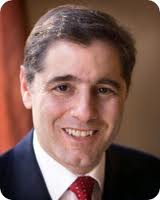Health IT start-ups can avoid the political minefield


One reason is that sweet, sweet stimulus cash, Michael Greeley of Flybridge General Partners told The Wall Street Journal.
Trouble is that cash will be tough to come by. The definitions for meaningful use under which the cash will be doled-out are functional, with the first kicking in less than two years from now. That's an eyeblink in health IT.
One reason this field does not move in Internet time is HIPAA, for which the late Sen. Edward Kennedy is being lionized today. It has had the unintended side-effect of layering regulatory compliance on top of any innovation or marketing plan, leading to an industry mired in the architectures of the 1970s.
It can take enormous effort to break through this regulatory stranglehold, as witness AthenaHealth itself. Co-founder Todd Park was criticized as a partisan when nominated recently to be CTO for the Department of Health and Human Services.
But Athena's other co-founder is Jonathan Bush. First cousin to George W. Bush, and nephew of George H.W. Bush. AthenaHealth is nothing if not bipartisan.
If it takes that much political pull to make a health IT success, why bother?
Rather than focus on the stimulus money, perhaps start-ups would be better advised looking to what FCC chair Julius Genachowski said in his notice of inquiry into the wireless market. Wireless health care applications are of particular interest to the agency, which seems dedicated to opening the market so these can thrive.
Back in 2003 I spent much time studying what I called "the world of always-on," applications that live in the air and deliver value not just for health care but home automation and inventory.
In health care such "killer apps" would include heart and glucose monitors that use wireless networks to give patients, caregivers or doctors alerts when the wearer starts fibrillating or going into hypoglycemic shock.
These devices are starting to come to market, and the agency has reassured the market that connecting them should not be a problem.
To me that sounds a lot more promising than hoping stimulus money will fall from the sky. Especially if, like most of us, you don't have friends or relatives in high places.